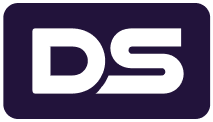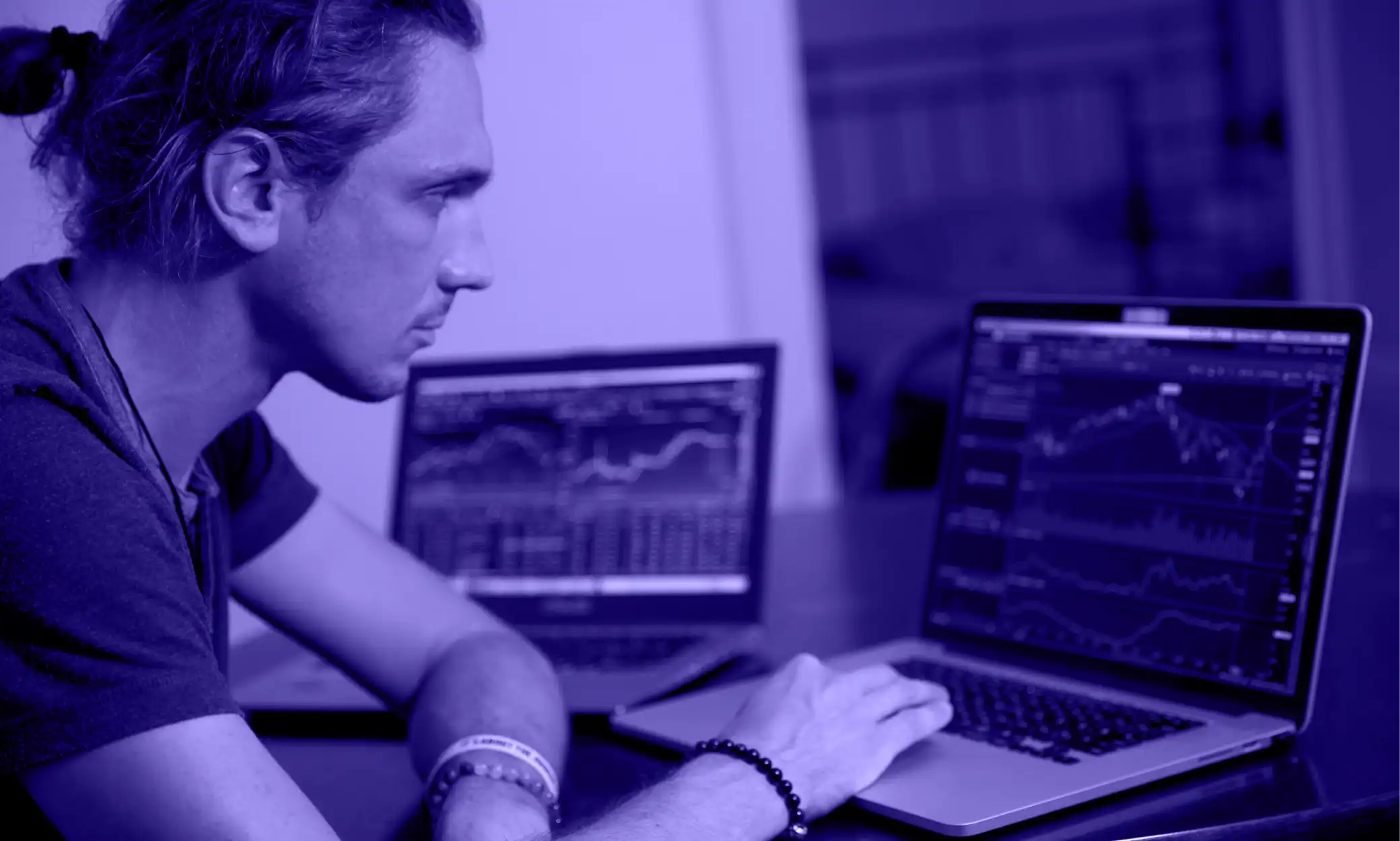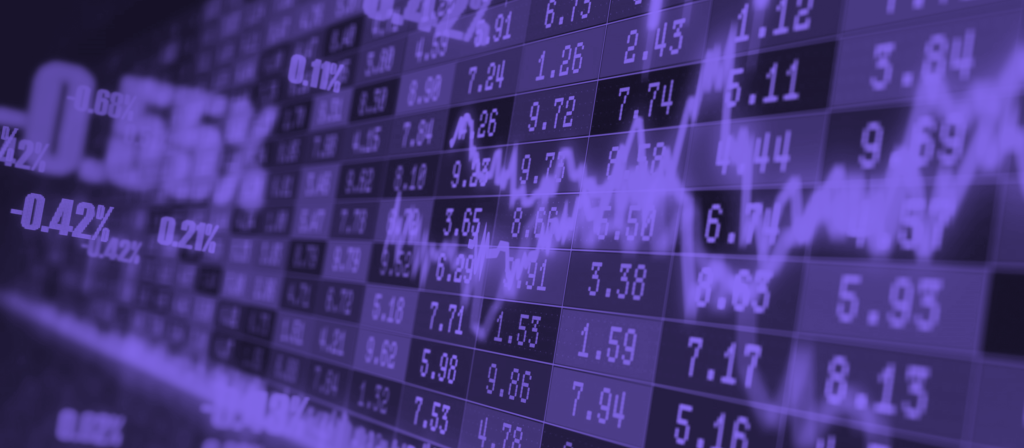Artificial Intelligence (AI) is shaking up the world of cryptocurrency trading, making it smarter, faster, and more efficient than ever. With digital assets trading 24/7 and market volatility constantly challenging traders, conventional trading approaches are adapting to keep pace. AI-powered trading tools are revolutionising the industry by enabling real-time decision-making, advanced market analysis, and fully automated strategies.
With increasing institutional adoption and retail traders seeking intelligent trading solutions, AI is becoming an essential tool in the crypto landscape. By analysing vast amounts of data and adapting to market trends instantly, AI helps traders capitalise on price movements more effectively.
This article explores how AI is reshaping cryptocurrency trading, the benefits it creates, and what traders need to consider when using AI-driven strategies.
What is AI-Powered Crypto Trading?
AI-powered crypto trading uses artificial intelligence and machine learning algorithms to analyse market data, identify trading opportunities, and execute trades automatically. Unlike traditional trading strategies that rely on predefined rules, AI-driven systems can adapt to changing market conditions in real time.
These trading systems leverage advanced technologies like:
- Machine Learning (ML) – AI models learn from past market trends to improve future predictions
- Natural Language Processing (NLP) – Analyses news, social media sentiment, and market updates
- Predictive Analytics – Identifies potential price movements before they happen.
How AI Differs from Traditional Trading Bots
Traditional algorithmic trading bots follow fixed rules—for example, buying Bitcoin when the price drops 5%. AI-powered trading, however, goes beyond static rules by continuously learning and refining its strategies based on real-time data. This allows AI to:
- Recognise emerging trends faster
- Adapt to volatile market shifts
- Minimise human error and emotional bias
By integrating AI, traders can enhance their decision-making and execute trades with greater efficiency.
Key Benefits of AI in Crypto Trading
AI is transforming cryptocurrency trading by providing speed, efficiency, and smarter decision-making. With the ability to analyse massive amounts of data and adapt in real-time, AI-powered trading provides several key advantages:
- Speed and Efficiency
AI can process and analyse market data in milliseconds, identifying trading opportunities far faster than any human trader. This is especially useful in the highly volatile crypto market, where price movements can happen within seconds. - Advanced Market Analysis
AI systems analyse historical price trends, trading volumes, on-chain data, and even social media sentiment to predict market movements with greater accuracy. This allows traders to make more informed decisions based on real-time insights. - Emotion-Free Trading
Unlike human traders, AI does not experience fear, greed, or panic. This eliminates emotional biases, ensuring more disciplined and data-driven trading strategies. AI executes trades based on logic, not impulse. - 24/7 Market Monitoring
Crypto markets never close, and AI trading bots operate 24/7, constantly scanning for opportunities. This means traders don’t have to stay glued to their screens or worry about missing profitable trades while they sleep. - Automated Risk Management
AI-powered trading systems incorporate automated stop-loss, take-profit, and position-sizing strategies to minimise losses and protect capital. Some AI tools even predict market downturns and adjust positions based on this evidence.
With these benefits, AI is becoming an essential tool for traders looking to optimise their digital assets.
AI Trading Strategies and Techniques
AI-powered crypto trading leverages several advanced strategies to maximise rewards and minimise risk. Here are some of the most common approaches:
- Sentiment Analysis Trading
AI scans news articles, social media, and financial reports to gauge market sentiment. By analysing trends in public opinion, AI can predict how news events might impact crypto prices and adjust trading strategies accordingly. - High-Frequency Trading (HFT)
AI-driven high-frequency trading executes a large number of trades in fractions of a second, taking advantage of small price movements. This strategy is used by hedge funds and institutional traders to capitalise on market inefficiencies. - Arbitrage Trading
AI identifies price differences across multiple exchanges and executes trades to capitalise on these discrepancies. Given the fragmented nature of crypto markets, AI can spot and act on arbitrage opportunities far faster than humans. - Trend Following
AI detects long-term trends in price movements and executes trades based on these patterns. It continuously refines its models by learning from past market behaviour, allowing traders to ride upward trends while avoiding downturns. - Portfolio Optimisation
Instead of focusing on a single asset, AI-powered trading systems diversify payments across multiple cryptocurrencies to balance risk and maximise rewards. AI rebalances portfolios based on real-time data, ensuring optimal asset allocation.
Challenges and Risks of AI in Crypto Trading
While AI brings significant advantages, it also comes with risks and limitations that traders must be aware of.
- Market Volatility
Crypto markets are highly unpredictable, and even the best AI models can struggle to adapt to extreme price swings or black swan events. AI’s past performance does not always guarantee future success. - Data Quality and Bias
AI models rely on accurate and diverse data to make predictions. If the data is biased or incomplete, AI may generate inaccurate trading signals, leading to losses. - Overfitting to Past Trends
AI systems learn from historical data, but past trends don’t always repeat. Overfitting—when AI models rely too heavily on previous patterns—can result in poor predictions when market conditions change unexpectedly. - Protection and Technical Risks
AI trading bots require secure infrastructure to prevent hacking and exploitation. Malicious actors can manipulate market data or execute attacks that disrupt AI-driven trading systems. - Regulatory Uncertainty
As governments tighten regulations on crypto trading and AI-based systems, traders must stay informed about compliance requirements to avoid legal risks. AI-powered trading tools may be subject to evolving financial regulations.
The Future of AI in Crypto Trading
As AI continues to evolve, its role in crypto trading will expand, bringing greater accuracy, automation, and efficiency. Future advancements may include:
- AI-powered Decentralised Finance (DeFi) – AI-driven smart contracts that execute trades without intermediaries
- More Sophisticated Predictive Models – Enhanced machine learning models that better anticipate price movements
- Greater Institutional Adoption – More hedge funds and financial institutions leveraging AI to optimise crypto portfolios
- AI-Integrated Risk Management – Smarter AI-driven tools to protect traders from extreme market fluctuations and unforeseen risks.
The fusion of AI and crypto trading is just getting started, and traders who embrace this technology will have a competitive edge in the progressing digital asset market.
The Future Is Here, But Are You Ready?
AI is transforming crypto trading by making it faster, more efficient, and data-driven. From high-frequency trading and arbitrage to sentiment analysis and portfolio management, AI-powered strategies are helping traders navigate volatile markets with greater precision.
However, AI is not a magic bullet—it comes with risks and requires continuous monitoring and fine-tuning. As AI technology advances, traders who leverage AI responsibly will be best positioned to stay ahead in the world of digital assets.
DISCLAIMER: The information in this blog is for general information purposes only. It is not intended as legal, financial or investment advice and should not be construed or relied on as such. Before making any commitment of a legal or financial nature you should seek advice from a qualified and registered legal practitioner or financial or investment adviser. No material contained within this website should be construed or relied upon as providing recommendations in relation to any legal or financial product.






